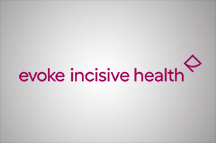The continuity candidate has won the leadership race and the country has reached Foundation Truss status. Our new Prime Minister has campaigned as a small state conservative but her ideological instincts will be tested thoroughly in her first 100 days, not least by the ongoing crises in the NHS.
It’s fair to say that health was not a central plank of Liz Truss’s leadership bid, but her short acceptance speech did include a somewhat cryptic commitment to “deliver on the NHS”, indicating that it will be one of her key priorities in government. With a statement on health expected later this week, we shouldn’t have to wait long to discover what this is likely to mean in practice. There is certainly no shortage of urgent challenges, with warning lights flashing across the health and social care system:
- Problems at the front door of hospitals with ambulance services in crisis and huge elective waiting times;
- Problems at the back door of hospitals with delayed discharges due to social care in crisis;
- Primary care on the brink with declining GP numbers and rising demand.
Underpinning the NHS issues that her Government has to deal with urgently are huge workforce pressures with an 11.8% vacancy rate (as of 30 June 2022), pension issues preventing senior doctors working at full capacity, workforce demoralisation and the potential for industrial action. In ‘normal’ times a new PM would try to manage these issues by lubricating the system with more money, but these are far from ‘normal’ times:
- The energy crisis not only creates a big unfunded cost pressure for the NHS (you can’t simply turn off the heating or lights) but also is likely to increase demand on the service – the NHS in England spends £1.3bn in a normal year treating preventable conditions caused by cold, damp homes;
- Her plans for tax cuts – from cancelling the national insurance rise to scrapping the planned increase in corporation tax – if implemented, will make additional funding commitments very difficult;
- Her suggestion during the hustings she would spend the £13bn package currently allocated to tackling COVID backlogs on social care have been widely rejected, so she will need a new plan to ease delays in hospital discharge.
There is urgent pressure on the incoming Prime Minister to have a plan for tackling energy prices on taking office. But arguably they there is equal need for her to have a plan for the NHS. NHS capacity in the summer of 2022 is already at winter levels and will worsen with the change of seasons and as the cost of living crisis bites. A catastrophic winter for the NHS will not help the electorate warm to the new PM.
Very real consequences are already evident for patients and the NHS, with John Burn Murdoch’s analysis showing there is a plausible case that 500 excess deaths per week are being caused by excessive waiting times in emergency care, whilst one in four people are expected to be on elective waiting lists by 2024. With so much at stake, there are some big decisions that Liz Truss, with her new Secretary of State, will need to take:
- What to do about staff pay and whether to ride out the political turbulence caused by way below inflation rises;
- Whether and how to fix the doctor’s and nurses pension issue;
- Which services can be allowed to slide this winter to manage the crisis and how to sell this to the public.
The state of the health and social care system will be a key factor in the outcome of the next general election. Liz Truss’s political future is likely to be closely tied to whether her Government can rise to the challenge that she set in her acceptance speech. The first step will be appointing her Secretary of State and setting out specifics of what the public can expect the NHS to deliver over the next two years.
Evoke Incisive Health is an award-winning healthcare policy and communications consultancy. We provide integrated support across the full range of audiences: policymakers, payers, healthcare providers, and patients.














